Vitamin B12 Deficiency
- Vitamin B12 deficiency is characterized by megaloblastic anemia, fatigue, weakness, constipation, loss of appetite, and weight loss.
- Neurological changes, such as numbness and tingling in the hands and feet, can also occur. Additional symptoms of vitamin B12 deficiency include difficulty maintaining balance, depression, confusion, dementia, poor memory, and soreness of the mouth or tongue.
- The neurological symptoms of vitamin B12 deficiency can occur without anemia, so early diagnosis and intervention is important to avoid irreversible damage.
- During infancy, signs of a vitamin B12 deficiency include failure to thrive, movement disorders, developmental delays, and megaloblastic anemia. Many of these symptoms are general and can result from a variety of medical conditions other than vitamin B12 deficiency.
- Typically, vitamin B12 deficiency is treated with vitamin B12 injections, since this method bypasses potential barriers to absorption. However, high doses of oral vitamin B12 may also be effective.
- The authors of a review of randomized controlled trials comparing oral with intramuscular vitamin B12 concluded that 2,000 mcg of oral vitamin B12 daily, followed by a decreased daily dose of 1,000 mcg and then 1,000 mcg weekly and finally, monthly might be as effective as intramuscular administration.
- Overall, an individual patient’s ability to absorb vitamin B12 is the most important factor in determining whether vitamin B12 should be administered orally or via injection. In most countries, the practice of using intramuscular vitamin B12 to treat vitamin B12 deficiency has remained unchanged.
- Folic acid and vitamin B12
- Large amounts of folic acid can mask the damaging effects of vitamin B12 deficiency by correcting the megaloblastic anemia caused by vitamin B12 deficiency without correcting the neurological damage that also occurs. Moreover, preliminary evidence suggests that high serum folate levels might not only mask a vitamin B12 deficiency but could also exacerbate the anemia and worsen the cognitive symptoms associated with vitamin B12 deficiency.
- Permanent nerve damage can occur if vitamin B12 deficiency is not treated. For these reasons, folic acid intake from fortified food and supplements should not exceed 1,000 mcg daily in healthy adults.
- Groups at Risk of Vitamin B12 Deficiency
- The main causes of vitamin B12 deficiency include vitamin B12 malabsorption from food, pernicious anemia, postsurgical malabsorption, and dietary deficiency. However, in many cases, the cause of vitamin B12 deficiency is unknown. The following groups are among those most likely to be vitamin B12 deficient.
- Older adults
- Atrophic gastritis, a condition affecting 10%–30% of older adults, decreases the secretion of hydrochloric acid in the stomach, resulting in decreased absorption of vitamin B12. Decreased hydrochloric acid levels might also increase the growth of normal intestinal bacteria that use vitamin B12, further reducing the amount of vitamin B12 available to the body.
- Individuals with atrophic gastritis cannot absorb the vitamin B12 that is naturally present in food. Most, however, can absorb the synthetic vitamin B12 added to fortified foods and dietary supplements.
- As a result, the IOM recommends that adults older than 50 years obtain most of their vitamin B12 from vitamin supplements or fortified foods. However, some elderly patients with atrophic gastritis require doses much higher than the RDA to avoid subclinical deficiency.
Individuals with pernicious anemia
Pernicious anemia, a condition that affects 1%–2% of older adults, is characterized by a lack of intrinsic factors. Individuals with pernicious anemia cannot properly absorb vitamin B12 in the gastrointestinal tract. Pernicious anemia is usually treated with intramuscular vitamin B12. However, approximately 1% of oral vitamin B12 can be absorbed passively in the absence of intrinsic factors, suggesting that high oral doses of vitamin B12 might also be an effective treatment.
- Individuals with gastrointestinal disorders
- Individuals with stomach and small intestine disorders, such as celiac disease and Crohn’s disease, may be unable to absorb enough vitamin B12 from food to maintain healthy body stores.
- Subtly reduced cognitive function resulting from early vitamin B12 deficiency might be the only initial symptom of these intestinal disorders, followed by megaloblastic anemia and dementia.
- Individuals who have had gastrointestinal surgery
- Surgical procedures in the gastrointestinal tract, such as weight loss surgery or surgery to remove all or part of the stomach, often result in a loss of cells that secrete hydrochloric acid and intrinsic factors.
- This reduces the amount of vitamin B12, particularly food-bound vitamin B12, that the body releases and absorbs. Surgical removal of the distal ileum also can result in the inability to absorb vitamin B12. Individuals undergoing these surgical procedures should be monitored preoperatively and postoperatively for several nutrient deficiencies, including vitamin B12 deficiency.
- Vegetarians
- Strict vegetarians and vegans are at greater risk than lacto-ovo vegetarians and nonvegetarians of developing vitamin B12 deficiency because natural food sources of vitamin B12 are limited to animal foods.
- Fortified breakfast cereals and fortified nutritional yeasts are some of the only sources of vitamin B12 from plants and can be used as dietary sources of vitamin B12 for strict vegetarians and vegans. Fortified foods vary in formulation, so it is important to read the Nutrition Facts labels on food products to determine the types and amounts of added nutrients they contain.
- Pregnant and lactating women who follow strict vegetarian diets and their infants
- Vitamin B12 crosses the placenta during pregnancy and is present in breast milk.
- Exclusively breastfed infants of women who consume no animal products may have very limited reserves of vitamin B12 and can develop vitamin B12 deficiency within months of birth. Undetected and untreated vitamin B12 deficiency in infants can result in severe and permanent neurological damage.
- supplemental vitamin B12 for vegans and lacto-ovo vegetarians during both pregnancy and lactation to ensure that enough vitamin B12 is transferred to the fetus and infant. Pregnant and lactating women who follow strict vegetarian or vegan diets should consult with a pediatrician regarding vitamin B12 supplements for their infants and children.
How Much to Get Vitamin B 12?
The answer depends on things including your age, your eating habits and medical conditions, and what medications you take.
The average recommended amounts, measured in micrograms (mcg), vary by age:
- Infants up to age 6 months: 0.4 mcg
- Babies age 7-12 months: 0.5 mcg
- Children age 1-3 years: 0.9 mcg
- Kids age 4-8 years: 1.2 mcg
- Children aged 9-13 years: 1.8 mcg
- Teens age 14-18: 2.4 mcg (2.6 mcg per day if pregnant and 2.8 mcg per day if breastfeeding)
- Adults: 2.4 mcg (2.6 mcg per day if pregnant and 2.8 mcg per day if breastfeeding)
Causes of Vitamin B 12 deficiency
Eating a vegan diet increases the risk of vitamin B-12 deficiency.
Even if a person gets enough vitamin B-12 in their diet, some underlying health conditions can affect the absorption of vitamin B-12 in the gut.
These conditions include:
- Crohn’s disease
- celiac disease
- atrophic gastritis
- pernicious anemia
The following factors make a person more likely to have a vitamin B-12 deficiency:
being older, because a person becomes less able to absorb B-12 as they age by eating a vegetarian or vegan diet
taking anti-acid medication for an extended period of weight loss surgery or other stomach surgery, can affect how the digestive system absorbs vitamin B-12
Symptoms of Vitamin B 12 deficiency
Pale or Jaundiced Skin
People with a B12 deficiency often look pale or have a slight yellow tinge to the skin and whites of the eyes, a condition known as jaundice.
This happens when a lack of B12 causes problems with your body’s red blood cell production.
Vitamin B12 plays an essential role in the production of the DNA needed to make red blood cells. Without it, the instructions for building the cells are incomplete, and cells are unable to divide.
This causes a type of anemia called megaloblastic anemia, in which the red blood cells produced in your bone marrow are large and fragile.
These red blood cells are too large to pass out of your bone marrow and into your circulation. Therefore, you don’t have as many red blood cells circulating around your body, and your skin can appear pale in color.
The fragility of these cells also means that many of them break down, causing an excess of bilirubin.
Bilirubin is a slightly red or brown-colored substance, which is produced by the liver when it breaks down old blood cells.
Large amounts of bilirubin are what give your skin and eyes a yellow tinge
Weakness and Fatigue
Weakness and fatigue are common symptoms of vitamin B12 deficiency.
They occur because your body doesn’t have enough vitamin B12 to make red blood cells, which transport oxygen throughout your body.
As a result, you are unable to efficiently transport oxygen to your body’s cells, making you feel tired and weak.
In the elderly, this type of anemia is often caused by an autoimmune condition known as pernicious anemia.
People with pernicious anemia don’t produce enough of an important protein called intrinsic factor.
Intrinsic factor is essential for preventing a B12 deficiency, as it binds with vitamin B12 in your gut so that you are able to absorb it.
Sensations of Pins and Needles
One of the more serious side effects of a long-term B12 deficiency is nerve damage.
This can occur over time, as vitamin B12 is an important contributor to the metabolic pathway that produces the fatty substance myelin. Myelin surrounds your nerves as a form of protection and insulation (9Trusted Source).
Without B12, myelin is produced differently, and your nervous system isn’t able to function properly.
One common sign of this happening is paresthesia, or the sensation of pins and needles, which is similar to a prickling sensation in your hands and feet.
Interestingly, the neurological symptoms associated with B12 deficiency usually occur alongside anemia. However, one study found that about 28% of people had neurological symptoms of B12 deficiency, without any signs of anemia (10Trusted Source).
That said, sensations of pins and needles are a common symptom that can have many causes, so this symptom alone is not usually a sign of B12 deficiency.
Changes to Mobility
If untreated, the damage to your nervous system caused by a B12 deficiency could cause changes to the way you walk and move.
It may even affect your balance and coordination, making you more prone to falling.
This symptom is often seen in undiagnosed B12 deficiency in the elderly, as people over the age of 60 are more prone to a B12 deficiency. However, preventing or treating deficiencies in this group may improve mobility (11Trusted Source, 12Trusted Source, 13Trusted Source).
Also, this symptom may be present in young people who have a severe, untreated deficiency.
Glossitis and Mouth Ulcers
Glossitis is a term used to describe an inflamed tongue.
If you have glossitis, your tongue changes color and shape, making it painful, red, and swollen.
The inflammation can also make your tongue look smooth, as all the tiny bumps on your tongue that contain your taste buds stretch out and disappear.
As well as being painful, glossitis can change the way you eat and speak.
Studies have shown that a swollen and inflamed tongue that has long straight lesions on it could be an early sign of vitamin B12 deficiency.
Additionally, some people with a B12 deficiency may experience other oral symptoms, such as mouth ulcers, feelings of pins and needles in the tongue, or a burning and itching sensation in the mouth.
Breathlessness and Dizziness
If you become anemic due to a B12 deficiency, you may feel short of breath and a bit dizzy, especially when you exert yourself.
This is because your body lacks the red blood cells it needs to get enough oxygen to your body’s cells.
However, these symptoms can have many causes, so if you notice that you are unusually breathless, you should speak to your doctor to investigate the cause.
Disturbed Vision
One symptom of vitamin B12 deficiency is blurred or disturbed vision.
This can occur when an untreated B12 deficiency results in nervous system damage to the optic nerve that leads to your eyes.
The damage can disrupt the nervous signal that travels from your eye to your brain, impairing your vision. This condition is known as optic neuropathy.
Although alarming, it is often reversible by supplementing with B12.
Mood Changes
People with B12 deficiency often report changes in mood.
In fact, low levels of B12 have been linked to mood and brain disorders like depression and dementia.
The “homocysteine hypothesis of depression” has been suggested as a potential explanation for this link.
This theory suggests that high levels of homocysteine caused by low levels of B12 could cause damage to the brain tissue and interfere with signals to and from your brain, leading to mood changes.
Some studies suggest that in certain people who are deficient in B12, supplementing with the vitamin can reverse symptoms (26Trusted Source, 27Trusted Source, 28Trusted Source).
It’s important to note that changes in mood and conditions like dementia and depression can have a variety of causes. Thus, the effects of supplementing in these conditions remain unclear (29Trusted Source, 30Trusted Source).
If you have a deficiency, taking a supplement may help improve your mood. However, it’s not a substitute for other proven medical therapies in the treatment of depression or dementia.
High Temperature
A very rare but occasional symptom of B12 deficiency is a high temperature.
It’s not clear why this occurs, but some doctors have reported cases of fever that have normalized after treatment with low levels of vitamin B12 (31Trusted Source).
However, it’s important to remember that high temperatures are more commonly caused by illness, not a B12 deficiency.
Treating vitamin B12 deficiency anemia:
Vitamin B12 deficiency anemia is usually treated with injections.
There are 2 types of vitamin B12 injections:
- hydroxocobalamin
- cyanocobalamin
- Hydroxocobalamin is usually the recommended option as it stays in the body for longer.
- At first, you’ll have these injections every other day for 2 weeks or until your symptoms have started improving.
- Your GP or nurse will give the injections.
- After this initial period, your treatment will depend on whether the cause of your vitamin B12 deficiency is related to your diet or whether the deficiency is causing any neurological problems, such as problems with thinking, memory, and behavior.
- The most common cause of vitamin B12 deficiency in the UK is pernicious anaemia, which is not related to your diet.
- Diet-related
- If your vitamin B12 deficiency is caused by a lack of vitamins in your diet, you may be prescribed vitamin B12 tablets to take every day between meals.
- Or you may need to have an injection of hydroxocobalamin twice a year.
- People who find it difficult to get enough vitamin B12 in their diets, such as those following a vegan diet, may need vitamin B12 tablets for life.
- Although it’s less common, people with vitamin B12 deficiency caused by a prolonged poor diet may be advised to stop taking the tablets once their vitamin B12 levels have returned to normal and their diet has improved.
- Good sources of vitamin B12 include:
- meat
- salmon and cod
- milk and other dairy products
- eggs
- If you’re a vegetarian or vegan, or are looking for alternatives to meat and dairy products, there are other foods that contain vitamin B12, such as yeast extract (including Marmite), as well as some fortified breakfast cereals and soy products.
Check the nutrition labels while food shopping to see how much vitamin B12 different foods contain.
- Not diet-related
- If your vitamin B12 deficiency is not caused by a lack of vitamin B12 in your diet, you’ll usually need to have an injection of hydroxocobalamin every 2 to 3 months for the rest of your life.
- If you have had neurological symptoms that affect your nervous system, such as numbness or tingling in your hands and feet, caused by a vitamin B12 deficiency, you’ll be referred to a haematologist and may need to have injections every 2 months.
- Your haematologist will advise on how long you need to keep taking the injections.
- For injections of vitamin B12 given in the UK, hydroxocobalamin is preferred to an alternative called cyanocobalamin. This is because hydroxocobalamin stays in the body for longer.
- If you need regular injections of vitamin B12, cyanocobalamin would need to be given once a month, whereas hydroxocobalamin can be given every 3 months.
- Cyanocobalamin injections are not routinely available on the NHS as hydroxocobalamin is the preferred treatment.
- But if you need replacement tablets of vitamin B12, these will usually be in the form of cyanocobalamin.
- Treating folate deficiency anaemia
- To treat folate deficiency anaemia, your GP will usually prescribe daily folic acid tablets to build up your folate levels.
- They may also give you dietary advice so you can increase your folate intake.
- Good sources of folate include:
- broccoli
- brussels sprouts
- asparagus
- peas
- chickpeas
- brown rice
- Most people need to take folic acid tablets for about 4 months. But if the underlying cause of your folate deficiency anaemia continues, you may have to take folic acid tablets for longer, possibly for life.
- Before taking folic acid, your GP will check your vitamin B12 levels to ensure they’re normal.
- This is because folic acid treatment can sometimes improve your symptoms so much that it masks an underlying vitamin B12 deficiency.
- If a vitamin B12 deficiency is not detected and treated, it could affect your nervous system.
- Monitoring your condition
- To ensure your treatment is working, you may need to have further blood tests.
- A blood test is often carried out around 10 to 14 days after starting treatment to assess whether treatment is working.
- This is to check your haemoglobin level and the number of immature red blood cells (reticulocytes) in your blood.
- Another blood test may also be carried out after approximately 8 weeks to confirm your treatment has been successful.
- If you have been taking folic acid tablets, you may be tested again once the treatment has finished (usually after 4 months).
- Most people who have had a vitamin B12 or folate deficiency will not need further monitoring unless their symptoms return or their treatment is ineffective.
- What Causes Vitamin B12 Deficiency Anemia?
- You can get vitamin B12 deficiency anemia if you don’t get enough vitamin B12 in your diet from foods like milk, eggs, and meat. You’re more likely to be low in this vitamin if you’re older, or you eat a vegetarian diet. It can also happen if your body can’t absorb enough of it from the foods you eat.
- Your intestines absorb vitamin B12 from food. A protein your stomach makes called “intrinsic factor” helps your body absorb it. When you don’t have enough, you have a type of vitamin B12 deficiency anemia called “pernicious anemia.”
- You can get pernicious anemia if:
- You have an autoimmune disease that makes your immune system attack the cells in your stomach that produce intrinsic factors.
- You have surgery to remove part of your stomach, where the intrinsic factor is made.
- Your body also might not absorb enough vitamin B12 if:
- You have a disease that affects how nutrients are absorbed in your intestines, such as Crohn’s disease, HIV, or some infections.
- You have certain bad bacteria in your intestines.
- You take some medicines, such as antibiotics and anti-seizure drugs.
- You’ve had surgery to remove part of your intestines.
- You’ve been infected with a tapeworm.
Treatment
If you have pernicious anemia or have trouble absorbing vitamin B12, you’ll need shots of this vitamin at first. You may need to keep getting these shots, take high doses of a supplement by mouth, or get it nasally after that.
If you don’t eat animal products, you have options. You can change your diet to include vitamin B12-fortified grains, a supplement or B12 injections, or a high-dose oral vitamin B12 if you are deficient.
Older adults who have a vitamin B12 deficiency will likely have to take a daily B12 supplement or a multivitamin that contains B12.
For most people, treatment resolves the problem. But, any nerve damage that happened due to the deficiency could be permanent.
How to Prevent Vitamin B 12 deficiency?
Most people can prevent vitamin B12 deficiency by eating enough meat, poultry, seafood, dairy products, and eggs.
If you don’t eat animal products, or you have a medical condition that limits how well your body absorbs nutrients, you can take vitamin B12 in a multivitamin or other supplement and foods fortified with vitamin B12.
If you choose to take vitamin B12 supplements, let your doctor know, so he or she can tell you how much you need, or make sure they won’t affect any medicines you’re taking.

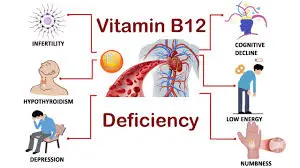
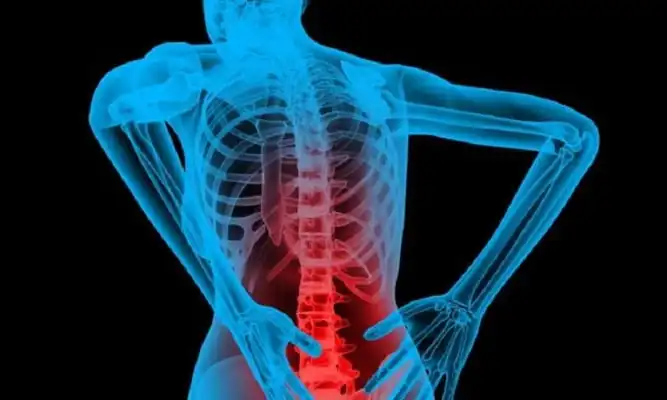
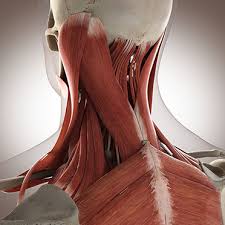

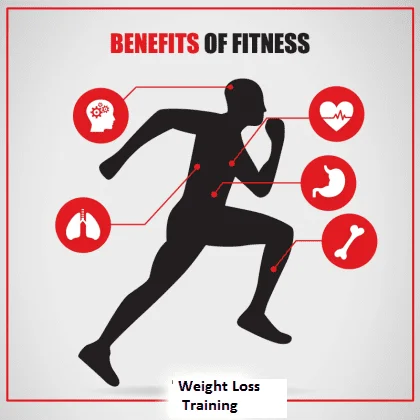
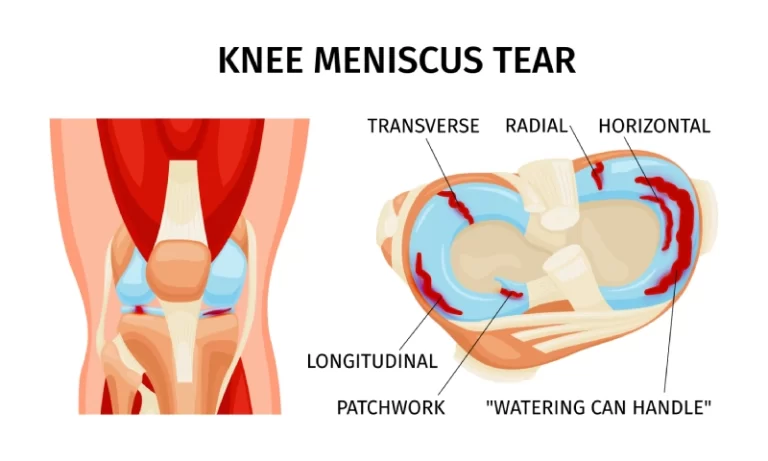

5 Comments